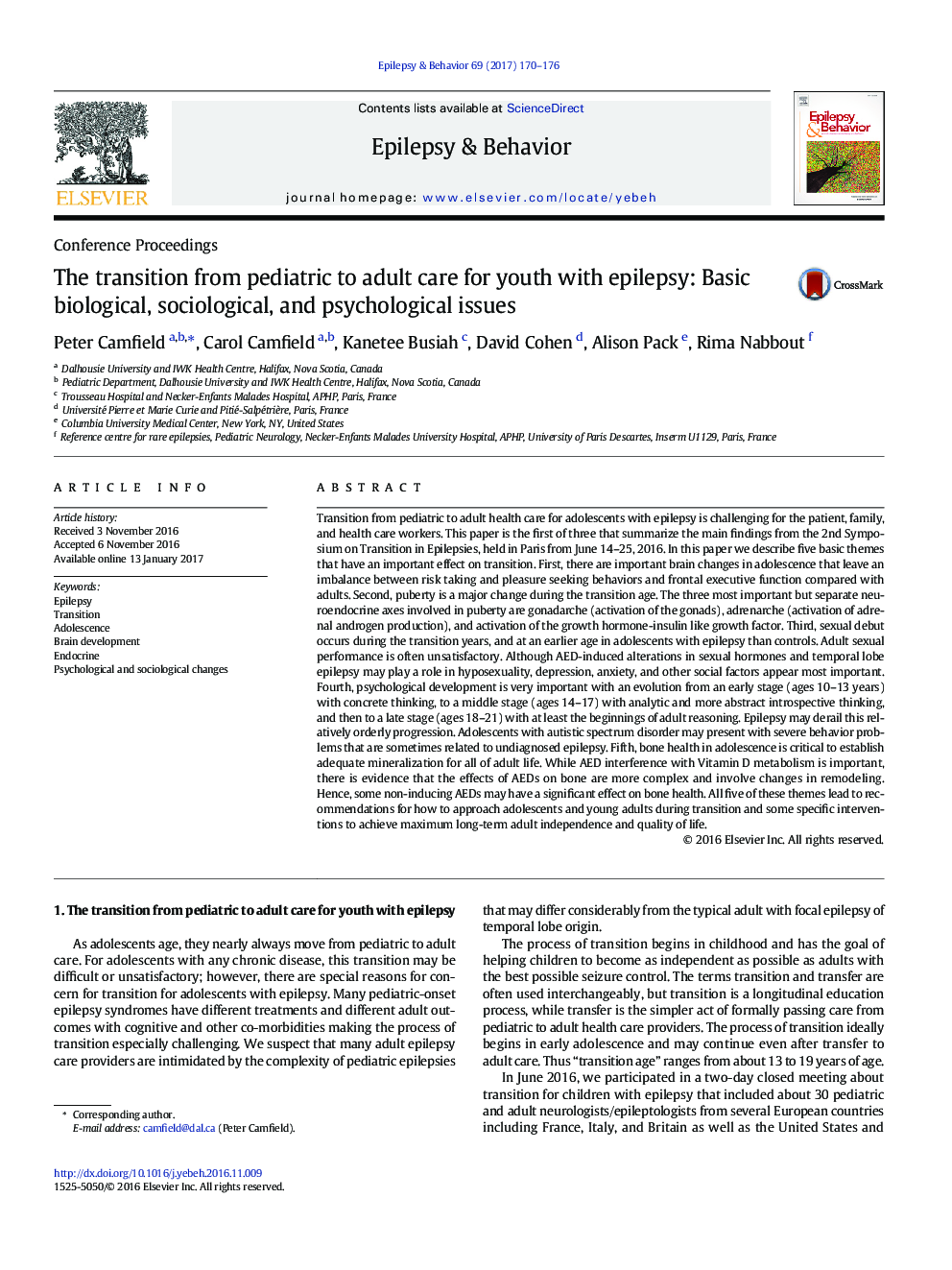| کد مقاله | کد نشریه | سال انتشار | مقاله انگلیسی | نسخه تمام متن |
|---|---|---|---|---|
| 5628424 | 1579823 | 2017 | 7 صفحه PDF | دانلود رایگان |
- Impulsive pleasure seeking and risky behaviors may be the result of an imbalance between frontal and limbic maturation.
- Puberty has a major effect on development, personality, and behavior.
- Sexual debut is early in youth with epilepsy and long-term sexual experiences are often unsatisfactory.
- Normal psychological developmental stages in adolescence may be disrupted by epilepsy.
- The degree of risk for and mechanisms of bone disorders in childhood-onset epilepsy are complex.
Transition from pediatric to adult health care for adolescents with epilepsy is challenging for the patient, family, and health care workers. This paper is the first of three that summarize the main findings from the 2nd Symposium on Transition in Epilepsies, held in Paris from June 14-25, 2016. In this paper we describe five basic themes that have an important effect on transition. First, there are important brain changes in adolescence that leave an imbalance between risk taking and pleasure seeking behaviors and frontal executive function compared with adults. Second, puberty is a major change during the transition age. The three most important but separate neuroendocrine axes involved in puberty are gonadarche (activation of the gonads), adrenarche (activation of adrenal androgen production), and activation of the growth hormone-insulin like growth factor. Third, sexual debut occurs during the transition years, and at an earlier age in adolescents with epilepsy than controls. Adult sexual performance is often unsatisfactory. Although AED-induced alterations in sexual hormones and temporal lobe epilepsy may play a role in hyposexuality, depression, anxiety, and other social factors appear most important. Fourth, psychological development is very important with an evolution from an early stage (ages 10-13Â years) with concrete thinking, to a middle stage (ages 14-17) with analytic and more abstract introspective thinking, and then to a late stage (ages 18-21) with at least the beginnings of adult reasoning. Epilepsy may derail this relatively orderly progression. Adolescents with autistic spectrum disorder may present with severe behavior problems that are sometimes related to undiagnosed epilepsy. Fifth, bone health in adolescence is critical to establish adequate mineralization for all of adult life. While AED interference with Vitamin D metabolism is important, there is evidence that the effects of AEDs on bone are more complex and involve changes in remodeling. Hence, some non-inducing AEDs may have a significant effect on bone health. All five of these themes lead to recommendations for how to approach adolescents and young adults during transition and some specific interventions to achieve maximum long-term adult independence and quality of life.
Journal: Epilepsy & Behavior - Volume 69, April 2017, Pages 170-176
